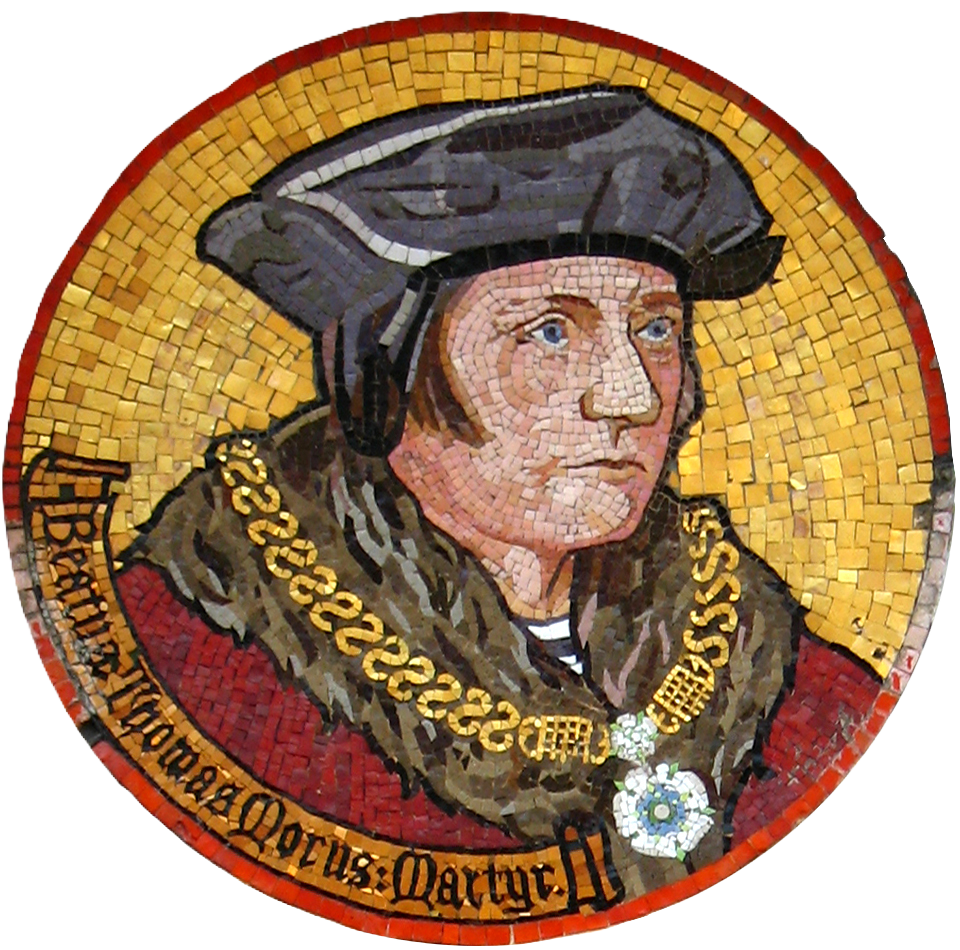
Thomas More had a remarkable political career in his native land. Born in London in 1478 of a respectable family, as a young boy he was placed in the service of the Archbishop of Canterbury, John Morton, Lord Chancellor of the Realm. He then studied law at Oxford and London, while broadening his interests in the spheres of culture, theology and classical literature.
Throughout his life he was an affectionate and faithful husband and father, deeply involved in his children’s religious, moral and intellectual education. His house offered a welcome to his children’s spouses and his grandchildren, and was always open to his many young friends in search of the truth or of their own calling in life.
Highly esteemed by everyone for his unfailing moral integrity, sharpness of mind, his open and humorous character, and his extraordinary learning, in 1529 at a time of political and economic crisis in the country he was appointed by the King to the post of Lord Chancellor. The first layman to occupy this position, Thomas faced an extremely difficult period, as he sought to serve King and country.
In fidelity to his principles, he concentrated on promoting justice and restraining the harmful influence of those who advanced their own interests at the expense of the weak. In 1532, not wishing to support Henry VIII’s intention to take control of the Church in England, he resigned. He withdrew from public life, resigning himself to suffering poverty with his family and being deserted by many people who, in the moment of trial, proved to be false friends.
Given his inflexible firmness in rejecting any compromise with his own conscience, in 1534 the King had him imprisoned in the Tower of London. At his trial, he made an impassioned defense of his own convictions on the indissolubility of marriage, the respect due to the juridical patrimony of Christian civilization, and the freedom of the Church in her relations with the State. Condemned by the Court, he was beheaded.
Th[e] harmony between the natural and the supernatural is perhaps the element which more than any other defines the personality of this great English statesman: he lived his intense public life with a simple humility marked by good humor, even at the moment of his execution.
His profound detachment from honors and wealth, his serene and joyful humility, his balanced knowledge of human nature and of the vanity of success, his certainty of judgment rooted in faith: these all gave him that confident inner strength that sustained him in adversity and in the face of death. His sanctity shone forth in his martyrdom, but it had been prepared by an entire life of work devoted to God and neighbor.
